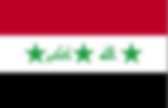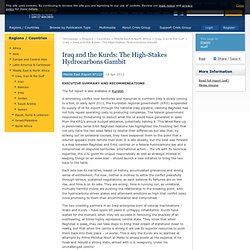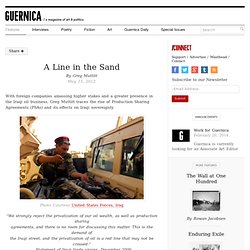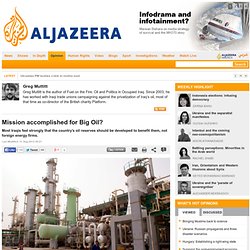

Iraq and the Kurds: The High-Stakes Hydrocarbons Gambit. Middle East Report N°120 19 Apr 2012 The full report is also available in Kurdish.

A simmering conflict over territories and resources in northern Iraq is slowly coming to a boil. In early April 2012, the Kurdistan regional government (KRG) suspended its supply of oil for export through the national Iraqi pipeline, claiming Baghdad had not fully repaid operating costs to producing companies. The federal government responded by threatening to deduct what the oil would have generated in sales from the KRG’s annual budget allocation, potentially halving it. This latest flare-up in perennially tense Erbil-Baghdad relations has highlighted the troubling fact that not only have the two sides failed to resolve their differences but also that, by striking out on unilateral courses, they have deepened them to the point that a solution appears more remote than ever.
Each side has its narrative, based on history, accumulated grievances and strong sense of entitlement. But the Kurds face a problem. Iraq Oil Almanac v 0.9 - Oil4All. A Line in the Sand. With foreign companies amassing higher stakes and a greater presence in the Iraqi oil business, Greg Muttitt traces the rise of Production Sharing Agreements (PSAs) and its effects on Iraqi sovereignty.

Photo Courtesy United States Forces, Iraq “We strongly reject the privatization of our oil wealth, as well as production sharing agreements, and there is no room for discussing this matter. This is the demand of the Iraqi street, and the privatization of oil is a red line that may not be crossed.” —Statement of Iraqi trade unions, December 2006 The Sweifieh district of Amman seems like an unlikely place to start a rebellion. Fifty yards downhill from the polished shopping area, I entered the Middle East headquarters of the Solidarity Center, the AFL- CIO’s international arm. On December 10, 2006, the Solidarity Center invited me to a workshop where eighteen Iraqi union leaders discussed Iraq’s oil situation and how it would affect them.
Had I bored them? Unions Organize Against the Law. Mission accomplished for Big Oil? In 2011, after nearly nine years of war and occupation, US troops finally left Iraq.

In their place, Big Oil is now present in force and the country’s oil output, crippled for decades, is growing again. Iraq recently reclaimed the number two position in the Organisation of the Petroleum Exporting Countries (OPEC), overtaking oil-sanctioned Iran. Now, there's talk of a new world petroleum glut. So is this finally mission accomplished?
Well, not exactly. Here, as a start, is a little scorecard of what’s gone on in Iraq since Big Oil arrived two and a half years ago: corruption’s skyrocketed; two Western oil companies are being investigated for either giving or receiving bribes; the Iraqi government is paying oil companies a per-barrel fee according to wildly unrealistic production targets they've set, whether or not they deliver that number of barrels; contractors are heavily over-charging for drilling wells, which the companies don’t mind since the Iraqi government picks up the tab.